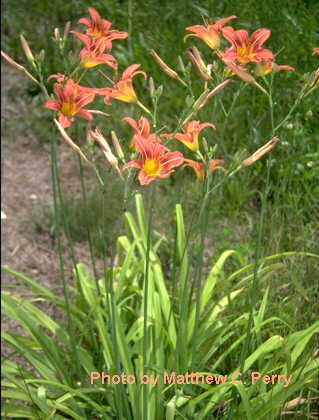CHOOSING THE RIGHT LANDSCAPING FOR YOUR ENVIRONMENT  <a onClick="window.open('/olcweb/cgi/pluginpop.cgi?it=jpg::::/sites/dl/free/0078695104/383912/unit6.jpg','popWin', 'width=NaN,height=NaN,resizable,scrollbars');" href="#"><img valign="absmiddle" height="16" width="16" border="0" src="/olcweb/styles/shared/linkicons/image.gif"> (26.0K)</a> <a onClick="window.open('/olcweb/cgi/pluginpop.cgi?it=jpg::::/sites/dl/free/0078695104/383912/unit6.jpg','popWin', 'width=NaN,height=NaN,resizable,scrollbars');" href="#"><img valign="absmiddle" height="16" width="16" border="0" src="/olcweb/styles/shared/linkicons/image.gif"> (26.0K)</a>
Introduction Landscaping a yard or other piece of property requires
pre-planning. For example, you wouldn’t want to plant
a tree that requires a lot of water in an arid or dry environment.
Likewise, you don’t want to plant a tree or other
vegetation that needs minimal amounts water in an environment
that receives a lot of rain. How do you know what types
of plants to choose? What types of plants grow in the major
biomes of the world? Top
Task In this WebQuest, you will be in charge of landscaping
a new neighborhood in the climate where you live. Your plan
will include types of trees, shrubs, grasses, and flowers
that will be planted along with their requirements for survival.
Before you write your plan, you will need to conduct research
on which types of plants grow best in the climate where
you live.
Top
Time Two class periods to research, answer questions, and create
plan Top
Process Begin your research by visiting the web sites listed under
Resources below. While you are gathering information about
plants, record the answers to these questions: - What are the major land biomes of the world?
- Which biome do you live in?
- How are desert plants different from the plants found
in tropical rain forests?
- What is xeriscaping?
- How are annuals and perennials different?
Once you have completed your research, create a landscaping
plan for a new neighborhood in the climate where you live.
Be sure to include a variety of plants including those that
provide food and shelter for other organisms in the environment.
You should have at least ten different plants in your plan.
Include a table with the following columns: Type of Plant,
Flowering or Non-flowering, Growing Requirements (include
soil, water, sunlight, and temperature requirements). Top
ResourcesUse these Web links to find the information you need to
complete this WebQuest.
Top Evaluation
Click Here
for Rubric Review the rubric to understand how you will be evaluated
in this WebQuest. Top
Conclusion In the process of completing this WebQuest, you have become
familiar with the types of plants found in your climate.
You have read information and answered a set of questions
dealing with North American biomes and the plants found
in each. You also created a plan that detailed the types
of plants that could be used to landscape a new neighborhood
in the climate where you live. By completing this WebQuest,
you have shown that you can apply research skills to develop
a plan. Top
| 




